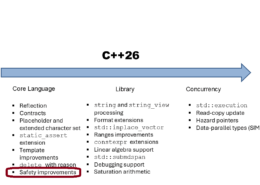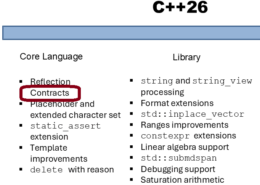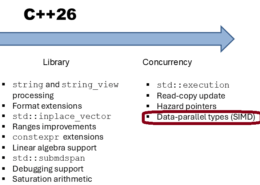Welcome to the Modernes C++ Blog
Hello, here you will find a brief overview of the Modernes C++ Blog, which comprises over 700 blog posts and is constantly growing.
The TOUR allows you to get a short overview of Rainer Grimm, the founder of the Blog, the BLOG and contributers today and the associated PORTFOLIO of learning content. Just scroll down.
The TABLE OF CONTENT gives an overview of all posts, classified in categories. Additionally, you can use the tag system or do a simple search. If you like it visual: Here is a short VIDEO.
In the PORTFOLIO section you will find all BOOKS, COURSES and can also head to Rainer Grimm’s MENTORING Program.








